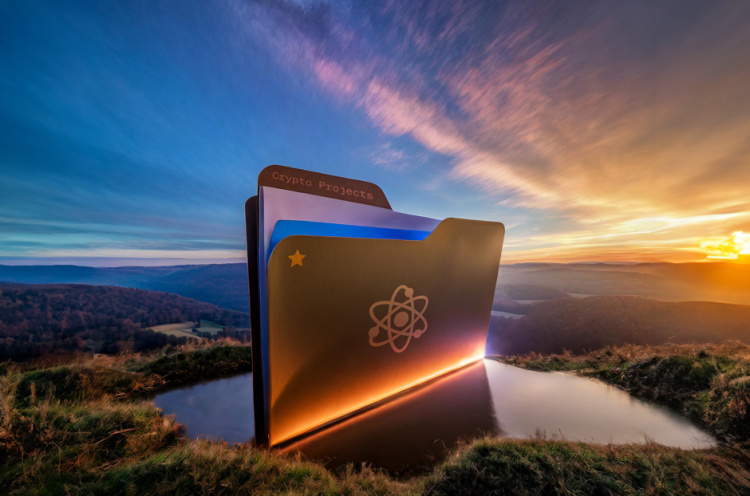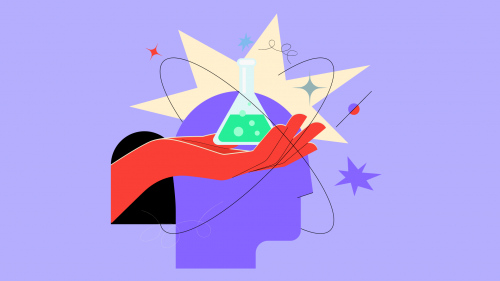As a researcher, you would benefit from more control over your research and data. So, turn your attention toward decentralized science (DeSci) because it does just that. DeSci empowers researchers, scientists, entrepreneurs, investors, businesses, and all parties involved in research activities.
What if researchers were rewarded with DeSci tokens for their contributions and funding decisions were made collectively? It would incentivize participation and empower researchers.
This is the essence of DeSci – where research data is transparent and readily available. And it promises greater accessibility and a more community-driven approach to scientific studies.
You can learn more about DeSci and its potential impact on the world of science and research from our upcoming research report on DeSci.
What are DeSci projects? – 4 inspiring examples
According to blockchain development specialists, blaize.tech:
“There has been a significant increase in blockchain applications for scientific research, with over 150 active DeSci projects reported as of 2024, attracting upwards of $200 million in funding from both institutional and community sources.”
From the business perspective, projects deploying DeSci platforms can participate in open, collaborative R&D projects. This provides access to a global pool of expertise, which can accelerate the development of new products, services, or technologies.
To help you get a clearer picture let’s take a look at some of the best DeSci crypto projects out there.
VitaDAO – exploring longevity research
VitaDAO focuses on healthy, aging, and longevity research and operates as a Decentralized Autonomous Organization (DAO).
The organization uses a global community of mostly researchers and longevity enthusiasts to collectively decide which research projects receive funding. VITA token holders vote on how the DAO’s treasury is allocated for research.
The pool-based resource approach allows VitaDAO to support a broader range of projects than traditional funding models.
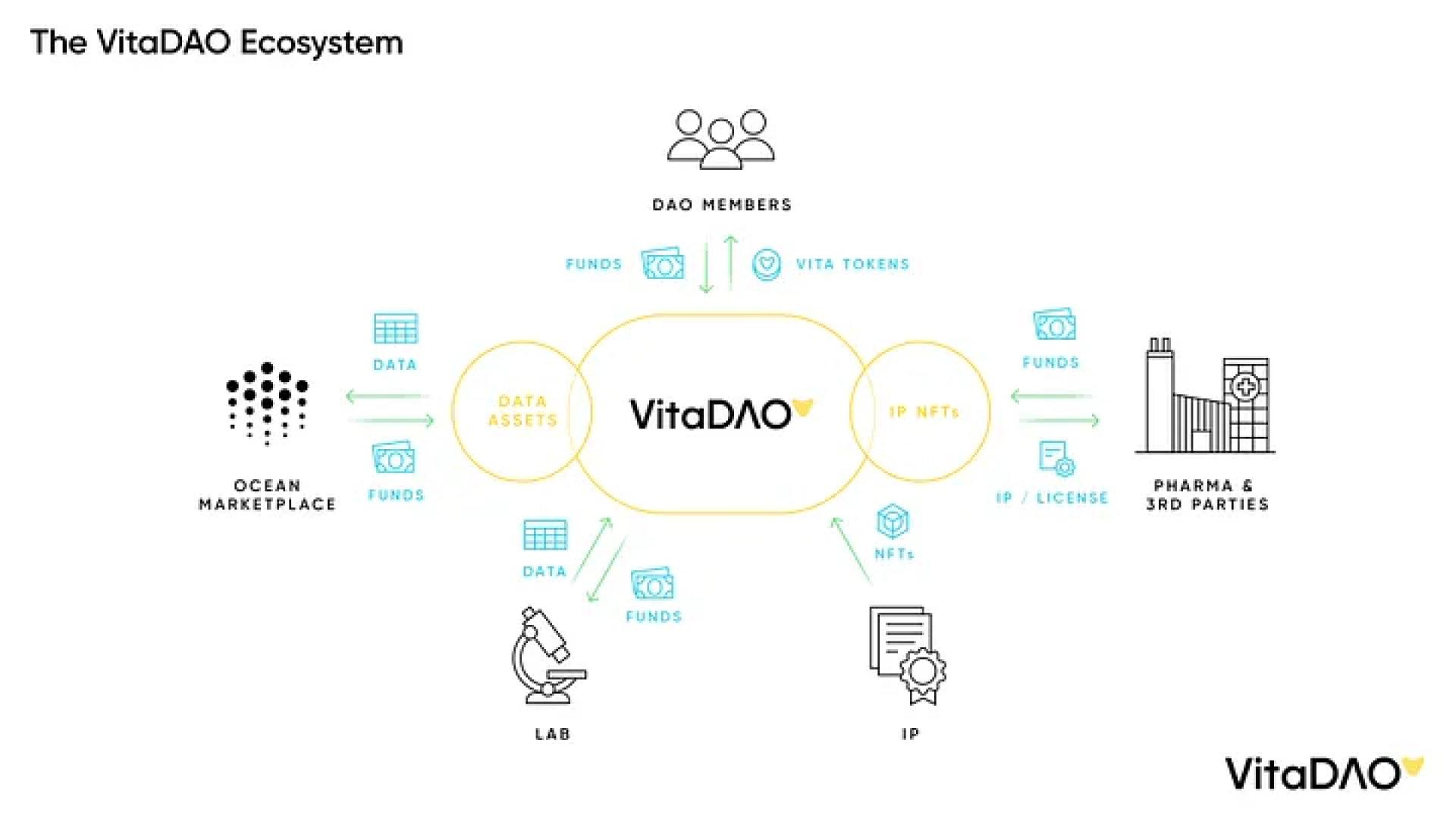
In return, VitaDAO will hold IP rights (intellectual property rights) to the early-stage therapeutics it funds.
This technique allows VitaDAO to build a portfolio of IP and data assets, which can be monetized through data marketplaces such as Ocean Market.
SpaceChain – taking DeSci to the stars
Another unique project that is taking DeSci in an upward trajectory is SpaceChain.
SpaceChain is on a mission to build an open, decentralized satellite infrastructure for the new space economy.
The blockchain software company develops open-source satellite software to integrate blockchain technology with satellites.
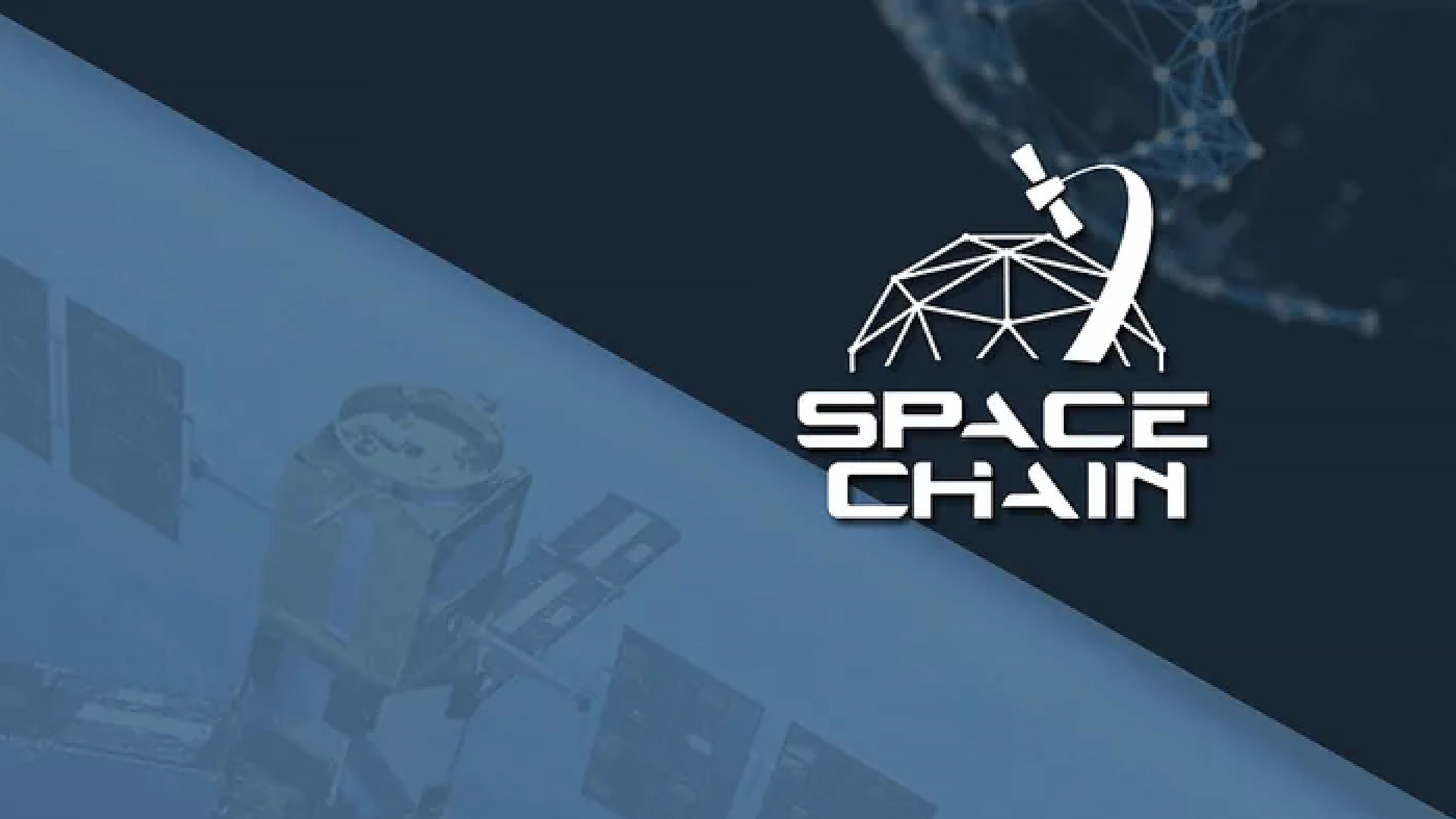
SpaceChain partners with NASA and operates a network of space nodes on satellites aboard the International Space Station (ISS).
It allows entrepreneurs who wish to develop space-based projects to access the SpaceChain network and maximize cost efficiency.
Galeon – driving breakthroughs in healthcare innovation
Galeon is a pharma company that specializes in electronic health records (EHR) and medical AI.
Using its shared patient record system, it collaborates with its partner HCS Pharma, a healthcare company focusing on drug development and research.
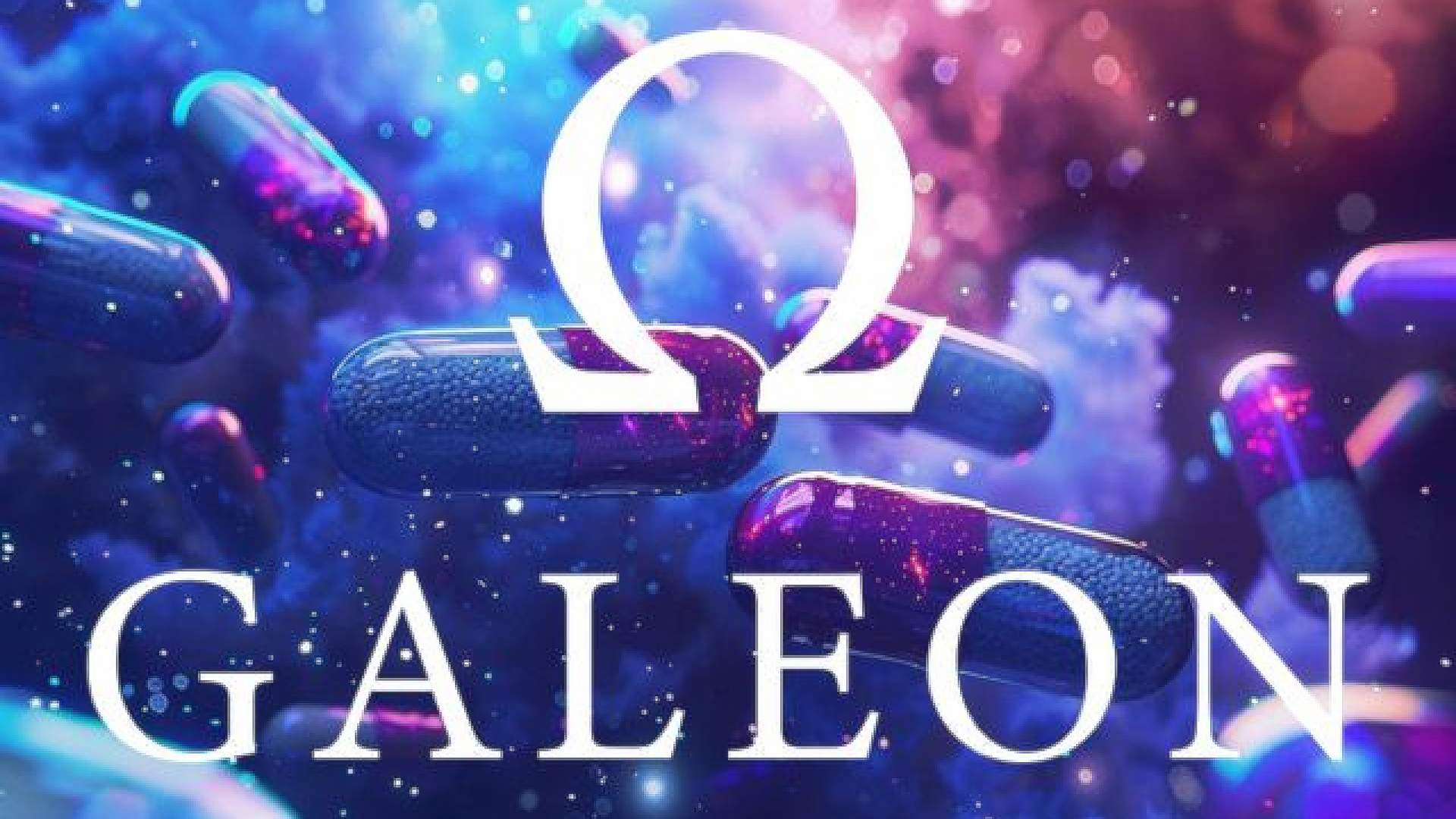
With this fusion, Galeon aims to connect hospitals. This, in turn, will facilitate structured and streamlined data collection and utilization for new treatment discoveries and medical research.
GenomeDao – initiating decentralized access to secure medical data
GenomeDao is a blockchain-based privacy platform. It creates user-owned databases and platforms for genomics data sharing.
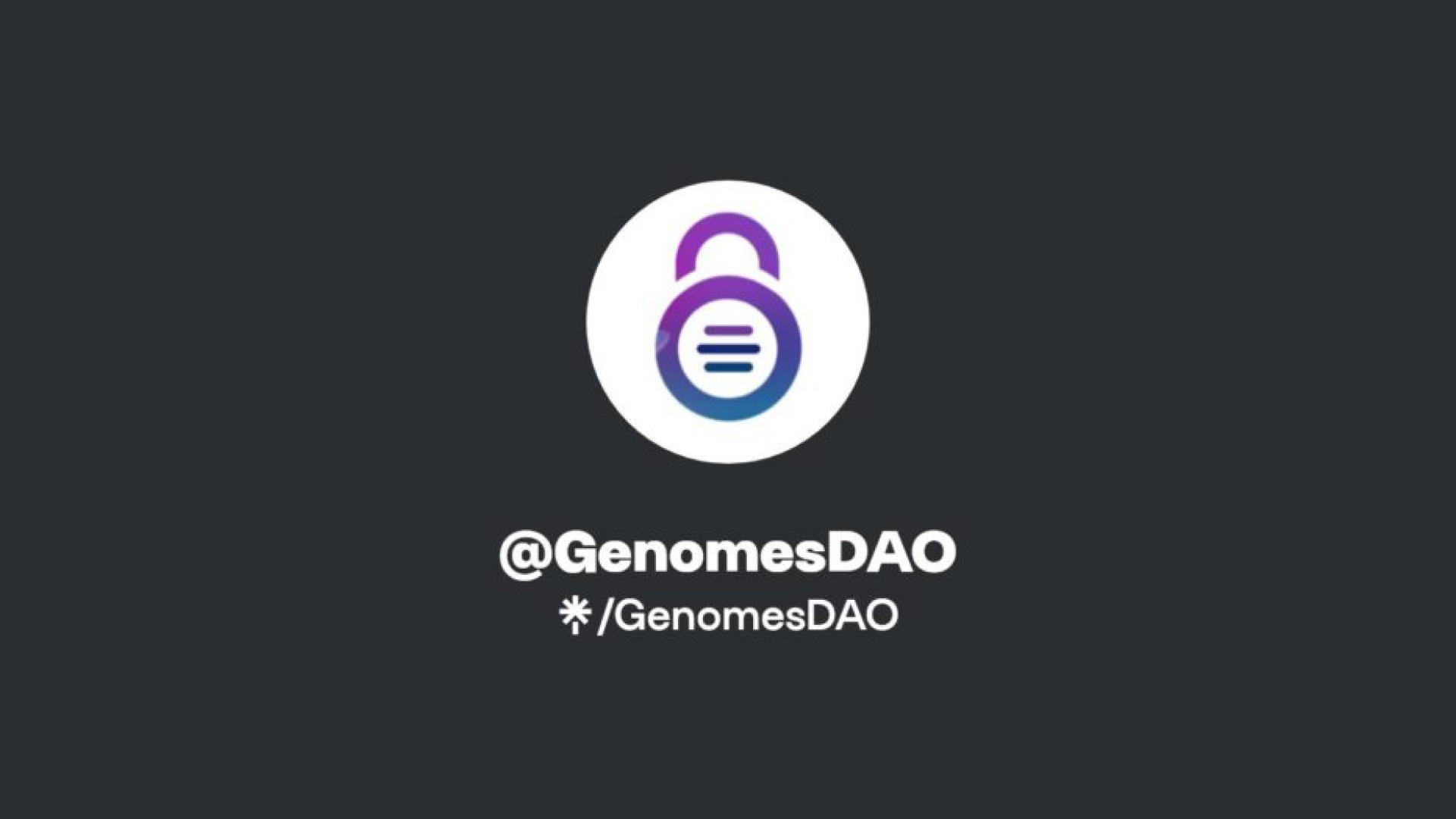
Medical research organizations and institutions can utilize its secure and participant-owned databases. It has also established partnerships with companies such as AMD and ConsenSys.
These are just a few fascinating projects in the limelight. But if you’re like us, you’re left with a bunch of questions.
What drives them? What are the incentives for all parties involved, from the researchers to the reviewers? Are DeSci tokens the answer, paving the way forward to provide compensation for all this hard work? Let’s find out.
How DeSci tokens help funding and provide incentives
As DeSci leverages blockchain features, this brings into play the use of crypto tokens, NFTs, and decentralized autonomous organizations (DAOs).
For example, fungible and non-fungible tokens play a significant role in the DeSci space.
Let’s take a step further and delve into how the tokenization of IP can benefit DeSci projects.
Tokenization of intellectual property
NFTs with real utility can represent unique digital assets such as research papers, datasets, code, and patents, providing verifiable ownership on the blockchain.
Using NFTs can shift control and monetization opportunities directly to creators and researchers rather than the institutions where the research is published or the publisher.
Utilization of tokens
Token usage plays an important role in the DeSci space; for example, fungible tokens can be used for transparent peer reviews. On the same token (pun intended!) NFTs can represent researchers’ intellectual property (IP) related to onchain projects.
A good business use case example where tokenization comes into play is Molecule.xyz. It uses a biotech DAO that focuses on funding early-stage research and incorporates NFTs.
Molecule.xyz uses IP-NFTs to finance research projects These NFTs contain legal IP rights and data access controls for various forms of intellectual property related to the research.
Types of DeSci crypto projects and the industries they affect
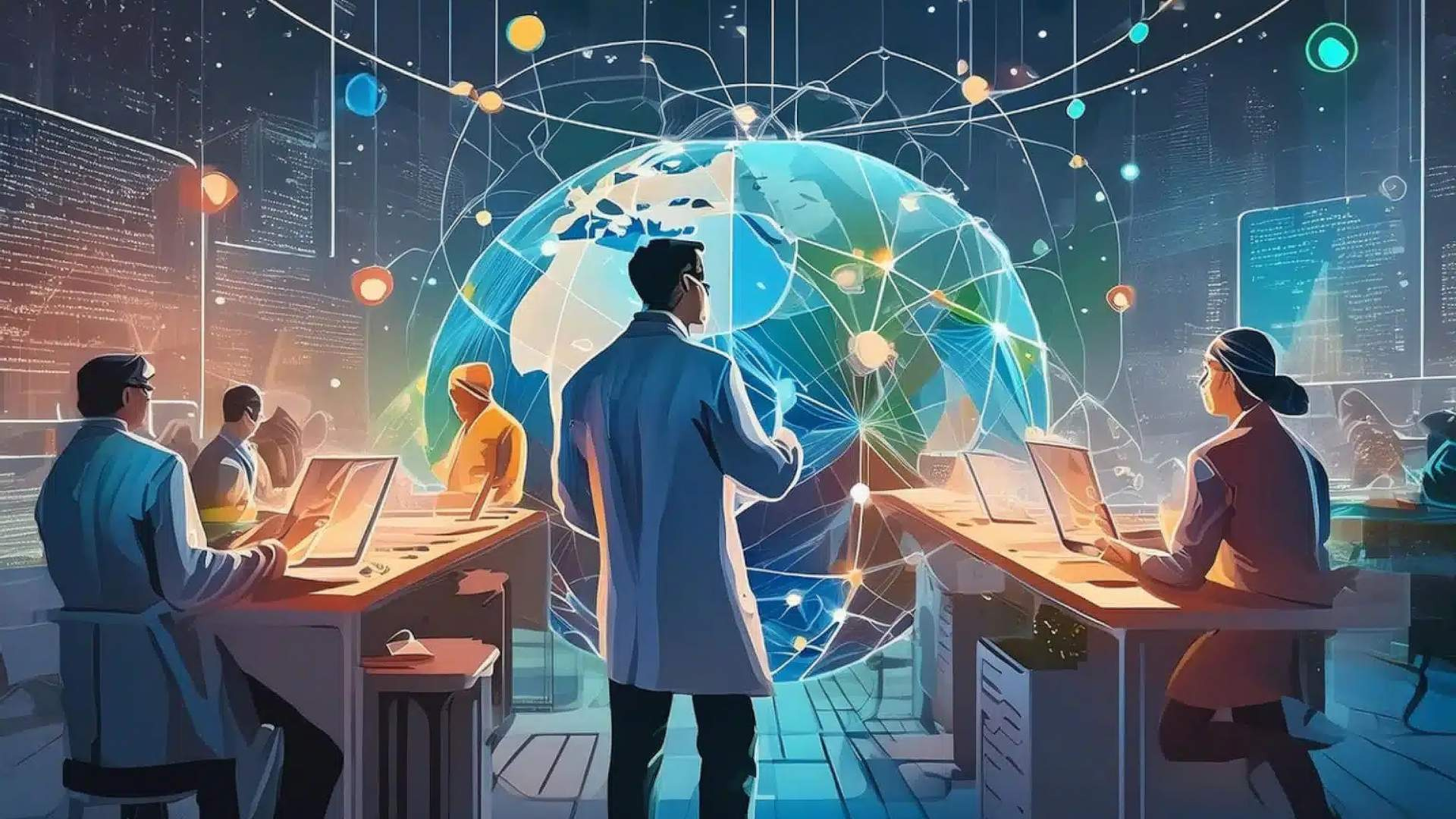
The adoption of decentralized science for businesses across major industries is still in its early phase.
However, promising developments and potential applications are emerging. Businesses, from the semiconductor industry to wearable technology companies, are reaping the benefits of DeSci.
Overall, the common denominator in DeSci consists of modifying traditional scientific processes by leveraging blockchain and Web3 principles.
As DeSci is a hot topic, you may be wondering which sector is jumping ahead in the DeSci Web3 space. It’s no surprise that the healthcare industry is leading the way here. We’ll share the most common areas and uses in the next section.
Healthcare – the shining light of the DeSci world
Why is the disruptive force of DeSci attracting more attention in the healthcare arena?

In healthcare, a more comprehensive range of DeSci platforms is being adopted than in other industries. There is more scope to secure institutional and government funding for medical research and health problems, as there is more public interest.
Furthermore, the advantages of improved patient diagnostics from working use cases and token incentives have propelled this forward.
Hence, medical research is made easier by collaborating with various stakeholders, such as institutions, researchers, grant providers, and governments.
Decentralized clinical trials (DCTs) are also in the spotlight in the healthcare sector. DCTs can track and manage patients’ progress, incentivize participant engagement, and enhance quality, efficiency, and transparency of research trials.
A significant number of DAOs are also active in the medicine and healthcare sector. The focus here is on areas like mental health, psychedelics, genetics, female health, and longevity health.
Finally, DeSci can tackle various overlooked challenges in biomedicine, such as neurodegenerative diseases, rare diseases, and drug repurposing.
Companies like Dynex, Crowd Funded Cures, Hippocrat, and Rymedi are forging ahead, sharing their success stories, and demonstrating DeSci’s potential in the medical sector.

Is DeSci the future of healthcare?
Zooming in even further, one could make the case that decentralized science may eventually transform into decentralized healthcare.
Why? Use cases in other industries remain limited, and healthcare’s significant impact on everyone could result in DeSci becoming a highly impactful Web3 niche.
Nevertheless, DeSci has the potential to benefit other sectors and industries, so let’s look at some of these projects.
Exploring the potential: other types of DeSci crypto projects
OriginTrail is an ecosystem designed to organize AI-ready knowledge assets. It has partnered with Oracle to develop a decentralized knowledge infrastructure for AI that will facilitate trusted data sharing along supply chains.
Copernic Space, HomePort, and Cudos are collaborating to create a tokenized marketplace for satellite imagery and earth observation data. This partnership aims to make space assets more accessible and affordable to a broader commercial market.
Nuco.Cloud operates a decentralized mesh hyperscaler platform with unlimited computing power for companies and scientific researchers to perform large-scale calculations and computations. A portion of its proceeds are donated to scientific research teams.
NobleBlocks is a decentralized, permissionless academic publishing platform. Its marketplace model allows researchers to propose projects, obtain funding through community-driven decisions, and collaborate on research initiatives.
ValleyDAO is a decentralized global community of bio entrepreneurs, academics, business developers, and open-source bioengineers dedicated to evaluating, funding, and commercializing synthetic biology research. It supports researchers by funding and collectively incubating both academic and independent projects.
Where is DeSci Web3 heading?
Can DeSci’s academic and business applications convince scientists to shift from traditional platforms to decentralized ones? Will it inspire entrepreneurs to build DeSci projects to enhance their research efforts?
The potential for DeSci is substantial, with some likening it to the “new GitHub of science.” Even Vitalik, himself, has praised DeSci, and invested both time and Ethereum into the sector. Advance in this series to see what he has to say about it.
